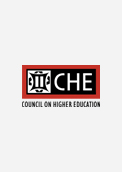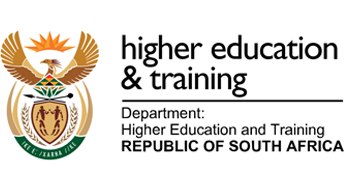News & Announcements

Introduction
This paper advances and draws on the following four propositions. First, in analysing the role of universities in social transformation there is a need to draw a distinction between the pre- and post-Apartheid periods; the former focuses on practices of resistance to the Apartheid regime and the latter on constituting a democratic polity in part by addressing Apartheid legacies. The second draws attention to the unintended consequences of National Party policy. It established black universities to produce passive elites to administer ethnic political institutions but created instead terrains that established a vibrant oppositional student movement and other forms of resistance within and related to the higher education sector. Third, in the post 1994 period the position of the state towards the role of universities and social transformation is derived from a policy inevitably open to reading in two opposing ways. The state demands that universities contribute towards economic and socio-political transformation, yet the nature of the transition from Apartheid to a democratic regime, its macro-economic state policies, and the constraints of globalisation have led to two opposing tendencies. In the first, universities are expected to perform as viable "corporate enterprises" producing graduates to help steer South Africa into a competitive global economy. In the second, universities are expected to serve the public good and produce critical citizens for a vibrant democratic society. To be sure these two tendencies need not be inherently contradictory, yet they do contain in a country with deep class, race and gender divisions the possibility of pulling in opposite directions. Last, when we consider universities as intrinsic sites of civil society, then the focus on the relationship between the state and civil society can be used to better illuminate some of the problems associated with the role of universities in the post-Apartheid system. While the ANC controlled state actively pursues a transformative agenda, institutions of civil society continue to be sites of ongoing contestation and remain more reticent to change. Universities, like other civil society institutions, if they are not simplistically conceived as monolithic coherent blocs, but as constituted by different constituencies (faculty, departments, students, administrators, workers, etc.) allows us to see how various sectors could function in contradictory ways - reproducing, eroding, transforming or remaining consciously oblivious to inherited and prevailing social relations.
The report in summary is organised into three broad sections: The first part includes a descriptive analysis of the main features of higher education under white domination, particularly those features of the historically black universities (HBUs) that created the material conditions for the heightened role of student resistance. Particular focus is on student mobilised protest campaigns that helped produce the crisis of Apartheid rule after the mid 1970's. The second part locates post-Apartheid developments in higher education in relation to the nature of the transition and the macro-economic context adopted post-1994. The third section analyses the relations between State policies, university responses to higher education reform, and their empirical impact on the economic, political, social, and cultural spheres of post-Apartheid society.
Higher Education and Social Transformation
The role of higher education institutions in social change during Apartheid is more obvious and clearly visible than its role in the ongoing transformation of contemporary South African society. However the intensely differentiated nature of higher education both in the past and present makes it difficult to speak about it as a "system" having coherence and an undifferentiated identity; hence it is problematic to conceive of a positive empirical relationship between higher education and social transformation in South Africa. The role of higher education institutions in contributing to the collapse of the Apartheid social order cannot be answered in an abstract, generalizable or purely causal manner. For example, while many black students, a few progressive academics in some departments, and unionised workers actively participated in the internal resistance movement to bring about the collapse of Apartheid, universities as institutions did not themselves serve as major levers of power against the old order. Instead, these institutions provided the institutional terrain, displaying repressive as well as conducive conditions ("protective spaces") that facilitated student protest behaviour. Only when higher education institutions are disaggregated into their various constituents does the role of each sector with respect to social transformation become more apparent.
During the Apartheid period, black students at historically black institutions created by the regime to produce and domesticate emerging black elites made higher education an important terrain of student mobilisation, ideological debate, and resistance. At the same time we should not to ignore other elements of protest within higher education: the resistance, less profound, but nevertheless present of black students at historically white universities, the activism of progressive white students and academics, the odd registering of protest of government policy by managerial elites at the English liberal campuses, and anti-government petitions presented by the leadership of the black universities themselves. All of this resistance, while not being decisive on their own, played an important role in eroding the legitimacy of the Apartheid social formation.
The running battles between students and police, mass meetings, demonstrations, boycotts, passionate debates between students of different ideological camps, teargas infested lecture rooms - all expressive manifestations of student political struggle on the black and some white campuses - transgressed the confines of the universities and impacted upon other areas of civil society marking those spaces as terrains of social conflict and protest. The resistance of black students from the 1970's, together with the strikes, boycotts and stayaways of workers, youth and working class communities involved in pitched battles with the police constituted the social forces that created the crisis of Apartheid rule in the 1980's. This broad spectrum of internal civil resistance, together with global, regional, and national factors, ushered the collapse of the Apartheid regime (Price, 1990). Indeed, it is arguable whether South Africa's democratic regime change, following the crisis of Apartheid rule in the 1980's, would have occurred at all without the contribution of black students from the 1970's onwards.
These practices of resistance are faint images to the present generation of students, a situation suggestive of the degree to which student life over the past ten years has become relatively "normal." The democratic state intends higher education institutions to play a significant role in social transformation. Similar to post-authoritarian societies in the 1990's and post-independence African states in the 1950's (Coleman, 1994), the democratic South African state holds high developmentalist expectations for higher education institutions. In the main the state hopes that higher education institutions will contribute towards overcoming the legacies of the country's racialised development, transform the society along democratic and more equitable lines, and make the country more competitive in the global economic system. It is not self-evident that these goals complement one another and whether higher education institutions can or will rise to the challenges that have been posed for them by the new democratic government.
As to be expected, the role universities can and ought to play in social transformation and the empirical role they do play is the focus of ongoing debate. Indeed, conflict over the core values concerning the direction, content, and quality of democratic social transformation - the subject of a broader societal discussion in political society, civil society and the state in the post-Apartheid period - has left the conversation of the role of universities and social transformation ongoing, passionate and the source of great complexity. The transforming impact of higher education institutions in the economic, political, social, and cultural spheres of society is open to debate. Crucial questions relate to how best to utilise the existing resources and capacities of universities? How can higher education institutions be transformed to make them more responsive to social and political goals? What are likely sources driving such changes? To the extent that there maybe pockets of resistance to democratic change in the society and universities how do we deal with this? What should be the nature of limits to university autonomy in the context of state subsidisation and pressing socio-economic pressures on the democratic society?
To begin with a heuristic generalisation we can identify two discourses of social transformation. The contours of the first emphasises quantitative, procedural changes to the "HE system", the need for the "system" to be efficiently regulated and co-ordinated by the state, be more responsive to the real challenges posed by globalisation by creating a skilled workforce for the so-called "knowledge society." The language of the present, the hard-nosed realities facing a small, middle-range power with historical backlogs like South Africa, a country located in an under-developed conflict prone region, but having to respond to the freight-train of globalisation, animates this standpoint. To respond to the new realities, a new education lexicon, part state-speak, part populist and part specialist, is associated with this approach. In this framework the choices open to the state elite are limited by factors out of its immediate control. This framework can be called the realist-instrumentalist paradigm.
The second nostalgically draws on the anti-Apartheid struggle for its bearings. It draws sustenance from the radical values popularised in the educational terrain of that struggle (the radical version of "peoples' education") as a template against which to evaluate post-Apartheid developments. The priority of the democratic state should be to substantively redistribute resources, to assign a critical role to universities in producing educated, well-rounded, Dewey-type citizens, and constantly reiterate the empowering quality of democratic society for those historically marginalized. The social conditions of those worst-off under Apartheid, the conditions and the struggles of the past are fore-grounded. Education, according to this standpoint, must contribute to the radical, not reformist, transformation of society. Obviously, it is difficult to easily place interventions in the discussion about higher education and social transformation neatly into one of these camps; elements comfortably located in each of these frames of reference, points of departure really, to various degrees present themselves in the higher education language used since 1994 within and outside the state.
The state and civil society in South Africa since 1994 have undergone remarkable changes, yet the resilience of old practices and ideas remains the cause of immense frustration and at times, anger. The capacity of the state to steer change in the higher education sector is complicated by the nature of the transition, macro-economic policies associated with dominant conceptions of globalisation, and significant cultures that want to resist deracializing changes within higher education in the terms posed under transformation discourses. Nevertheless, while the state may not be able to in the short-term change society entirely on the basis of its own vision using higher education institutions as instruments, longer-term changes in social relations are taking place through the "normal" functioning of these institutions.
A marked development following the collapse of Apartheid is that rigid racially exclusive universities no longer exist. The resource-rich, formerly white universities have ceased to be the preserve of white students. The historically black universities are not repressive, dominating places where democratic, critical discussion is vigilantly policed. Most importantly, increasing numbers of first generation black students, mostly middle class but also from poor, rural, and urban working class backgrounds are entering higher education institutions. Initially, they went to the historically black universities, then increasingly, in fairly large numbers to some formerly white universities (Cooper, 2001). The 1980's resistance generation may be inclined to view contemporary South African higher education institutions as becoming "normal universities", where political activism has no intrinsic calling, competing with other pursuits attracting the interests of students. Yet, many of the struggles that motivated the 1980's generation remain: the access of black women, working class, rural students in significant enough numbers to higher education institutions and to the leading universities in particular, the embarrassingly skewed racial composition of staff, where white academics dominate the key areas of university and academic life in all universities but especially at the historically white universities and technikons, and the need to restructure the curriculum to reflect the experiences, histories, cultures and politics of marginalized, subaltern discourses as these relate to the majority of continent-wide residents. The dominant institutional "ideologies", everyday practices at universities, still have to undergo the social changes experienced by state institutions. In South Africa the state has changed, at least in the composition of its personnel, yet civil society, the sphere where higher education institutions find themselves, has some ways to go.








